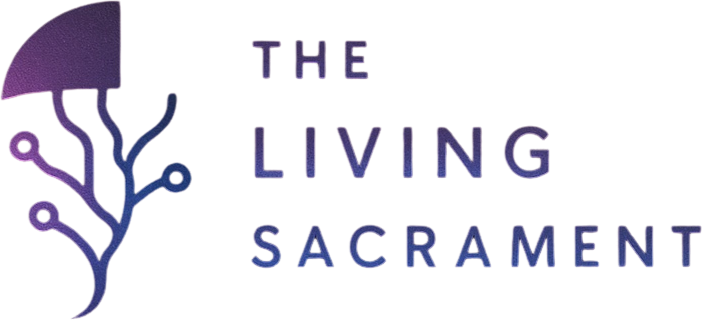A Sacred Community for Spiritual Awakening and Healing Through Entheogenic Sacrament
Doctrine of The Living Sacrament Church
1. Name and Purpose
The Living Sacrament is a belief‐informed religious community dedicated to the awakening of conscience, moral reflection, and reconciliation following suffering and trauma. The community’s religious life is expressed through structured, communal practices of reflection, ritual, and ethical integration.
TLS exists to cultivate disciplined religious practice rooted in meaning‐making, responsibility, and reverence. TLS does not function as a medical, psychological, or therapeutic provider, and participation does not substitute for licensed healthcare or mental‐health services.
2. Core Beliefs
TLS holds the following principles as foundational to its religious life:
• Sacred Meaning and Conscience: Religious practice addresses ultimate questions of suffering, responsibility, dignity, and reconciliation with self, community, and the transcendent.
• Community as Religious Context: Religious exercise is strengthened through communal ritual, shared reflection, and ethical accountability.
• Integration as Religious Discipline: Reflection on religious experience is honored through daily conduct, mindfulness, service, and moral responsibility.
TLS affirms that sacred practices may involve symbolic elements understood by adherents as sacramental. These practices are expressive and spiritual in nature and are not intended to diagnose, treat, or cure any medical or psychological condition.
3. The Role of the Sacrament
TLS recognizes sacramental practice only within defined communal religious contexts conducted according to established rules and discipline. Sacramental practice is understood as a symbolic and religious act undertaken within the community’s structured rituals.
Individual, unsupervised, or private conduct is not recognized as TLS religious practice. TLS does not recognize sacramental activity occurring outside its communal, rule‐bound religious settings.
This bounded structure preserves the integrity of TLS religious exercise and distinguishes it from personal, recreational, or secular conduct.
4. Ceremonial and Personal Practice
TLS religious exercise consists of:
• Guided communal ceremonies conducted under TLS religious discipline • Structured communal rituals of reflection and ethical integration • Non‐sacramental personal reflection practices (such as journaling, meditation, service, or prayer) undertaken individually as acts of integration
Only communal, rule‐bound practices constitute TLS religious exercise. Personal reflection supports, but does not replace or replicate, TLS sacramental practice.
5. Membership and Ethics
Membership in TLS requires individuals to:
• Affirm the religious and symbolic nature of TLS practices • Uphold values of honesty, respect, service, non‐violence, and accountability • Participate in required orientation and religious education • Comply with TLS practice rules and ethical standards.
TLS maintains authority to define misuse, restrict participation, and enforce compliance with its religious discipline. Violation of TLS standards may result in suspension or removal from TLS‐recognized activities.
TLS rejects commercialization, coercion, exploitation, or conduct inconsistent with its religious discipline.
6. Clergy and Leadership
TLS leaders and facilitators are trained in:
• Ethical guidance and moral reflection • Religious ritual facilitation • Community discipline and accountability
TLS leaders do not provide medical, psychological, or therapeutic services. Leadership authority exists to preserve religious integrity, not to deliver healthcare or treatment.
Ongoing education and ethical oversight are integral to TLS leadership.
7. Religious Freedom and Legal Standing
TLS recognizes the importance of religious freedom under applicable law and seeks to operate consistently with its sincerely held beliefs and governing legal frameworks. TLS does not assert blanket exemptions, nor does it engage in regulatory avoidance.
The structure, discipline, and communal nature of TLS practices reflect its commitment to lawful religious exercise.
8. Final Affirmation
We, the community of The Living Sacrament, affirm our commitment to disciplined religious practice, communal accountability, and ethical living.
This is our faith. This is our disciplined practice. This is our communal way.
